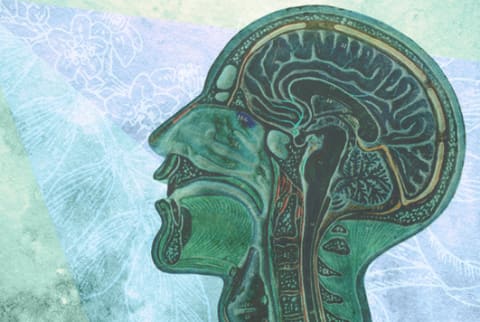Advertisement


I know what the brain needs. Yes, I am a board-certified neurologist, an integrative medicine physician, an acupuncturist, and a nutritional expert. But I have lived a life that includes everything from marathons to brain surgery (my own) and everything in between.
Here are just five key pieces of advice I give my patients, my friends, and my family when they ask about how to sharpen their minds:
1. Sleep
The brain needs sleep. We homo sapiens evolved as circadian beings. We are meant to fall asleep (in an optimal sleeping position) when the sun sets and awaken when the sun rises. While modern society and culture have limited our ability to respect that circadian rhythm, the brain still needs to stay healthy. We should simulate these rhythms as best we can.
- As the sun sets, start to allow your body and mind to settle as well in preparation for sleep.
- Optimize the chance for a restful sleep with a hot bath, chamomile tea, valerian tincture, and meditation. Note that if you awaken in the middle of the night—do not fret. Evolutionarily, we would awaken at night and at times, socialize with neighbors, or even procreate. The key is not to let it create an anxiety within and use the time to meditate or perform a body scan and allow your body to eventually return to sleep.
- Get outside for morning light between the hours of 6 a.m. and 10 a.m. for 20 minutes each day. During those hours, the sun is at an angle such that the eyes perceive the light and signal the brain that it is the start of a new day.
- A healthy breakfast is another means by which we let the body know that it is the start of a new day, and we feed our body dense nutrients to jump-start the myriad biochemical reactions that occur each day in each cell.
2. Exercise
Our bodies are meant to be in motion. This does not necessarily mean running marathons or climbing Mount Everest. But it does mean to walk, bike, stretch, or dance. Increase your heart rate at least 30 minutes a day, preferably outside in nature. Be cognizant of your posture several times throughout the day. Bonus: Correcting it connects parts of your body to your brain.
3. Nutrition
Every cell in our brain craves the nutrition provided by the plant world. Ideally, our meals should be as unprocessed as possible. We should further avoid anything that is pro-inflammatory and acid-forming including dairy, sugar, meat, and simple carbohydrates. A powerhouse recipe to start your day and infuse your brain cells with what they need after an overnight fast is a juice made from turmeric, ginger, cucumber, lemon, and pear. Add some drops of ashwagandha tincture for an adaptogenic healing boost.
4. Supplementation
Plants can help maintain the integrity and function of our neurons, the cells of the brain. I personally love boswellia and rhodiola. Boswellia has been demonstrated to reduce inflammation, and rhodiola has been shown to reduce the effects of glutamate, an excitatory neurotransmitter. Other potent supplements include those of the antioxidant class such as N-acetylcysteine, antimicrobial classes such as thyme, and alpha-lipoic acid, which can help activate neuronal regeneration.
5. Meditation
Studies have repeatedly shown regular that meditative sessions can and will reduce (and potentially even halt) atrophy, a term that describes the process of loss of brain tissue. Meditation can increase the strength of crosstalk between brain cells and can, in some cases, increase the volume of brain tissues, especially in areas such as the hippocampus, which is important for memory function.
These are five of my favorites, but there are others that are just as important as we go through our journey of life. Be mindful, be present, be kind, be content, smile at the sun, and try new things. The brain is a special organ and deserves respect. For who are we without it?